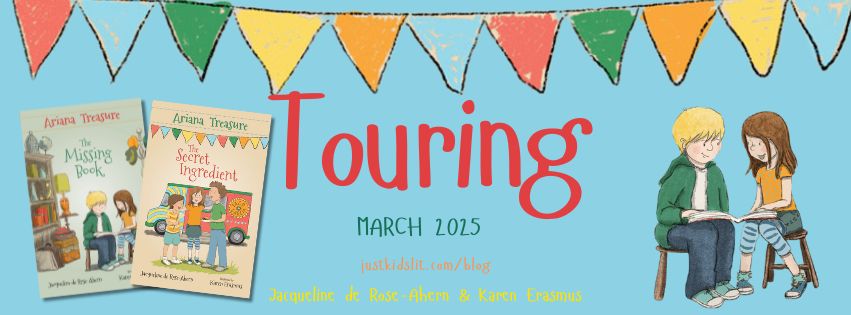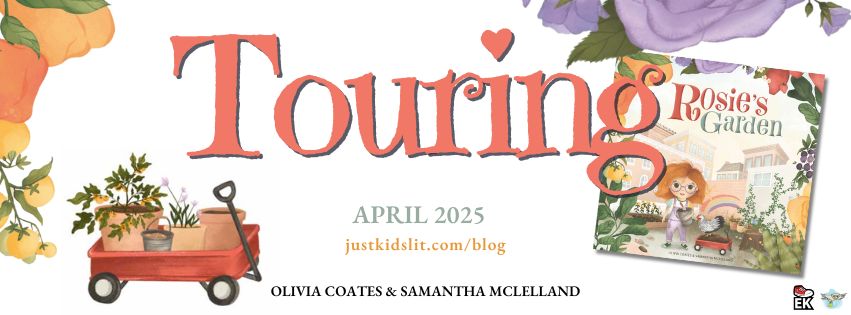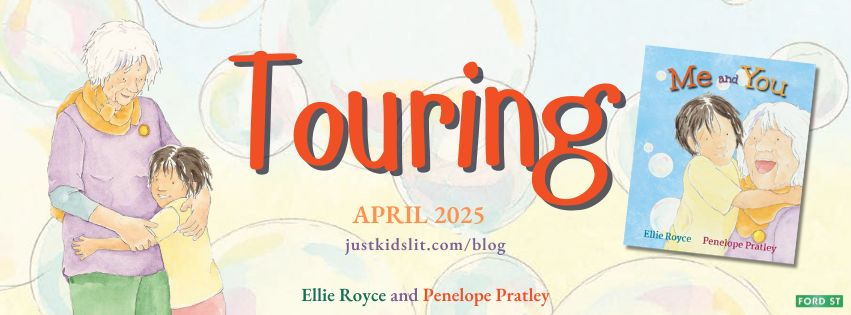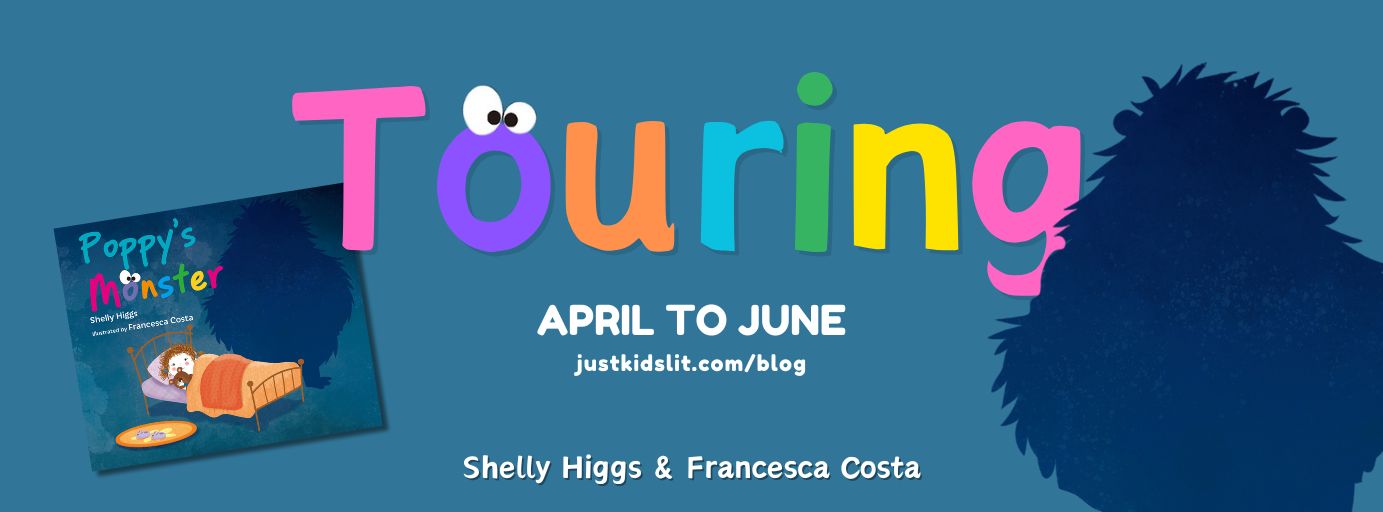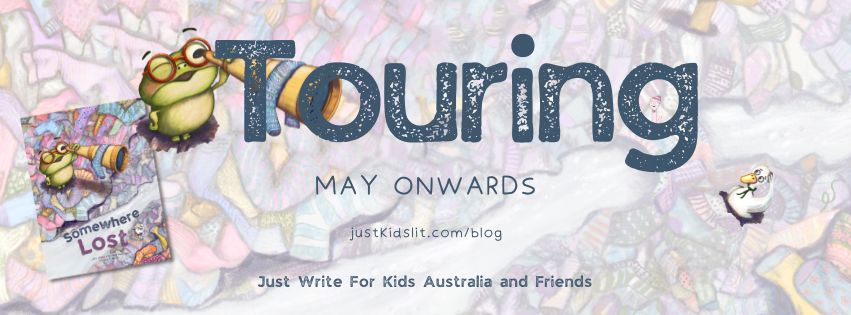 So far in my interview with the fearless Katrina McKelvey, we’ve seen how Katrina started pursuing her interest in writing for kids, developed networks and honed her skills in Part One, then a nuts and bolts look at how her books were picked up for publication in Part Two. In Part Three, we cover a range of topics from dealing with disappointments to book promotion, school visits and more. It’s a cornucopia of insights and handy hints. PLUS Katrina has even more news! She has recently been offered a contract for her fifth picture book! Congratulations Katrina! Make sure you follow her on the social media channels listed at the end of the interview to keep up to date with this, and other, breaking news.
So far in my interview with the fearless Katrina McKelvey, we’ve seen how Katrina started pursuing her interest in writing for kids, developed networks and honed her skills in Part One, then a nuts and bolts look at how her books were picked up for publication in Part Two. In Part Three, we cover a range of topics from dealing with disappointments to book promotion, school visits and more. It’s a cornucopia of insights and handy hints. PLUS Katrina has even more news! She has recently been offered a contract for her fifth picture book! Congratulations Katrina! Make sure you follow her on the social media channels listed at the end of the interview to keep up to date with this, and other, breaking news.
Now back to the interview:
Katrina, what have been the discouragements for you in this writing/publishing process? How have you dealt with these?
I’ve had to learn to accept and appreciate rejections. The worst ones are the silent rejections – the ones you have to assume you’re rejected after 3-6 months of silence. To deal with this I work out whether my manuscript needs a rewrite and then I run it via my writing group again, or I submit it to the next publisher on my list. It depends on the feedback, if there’s any.
I have a constant battle with self-doubt. Sometimes it lasts for a few hours and sometimes for days, even weeks. When it happens, I go and seek inspiration. I often find it at a children’s literature event, or from reading my favourite books.
It has taken me years to accept and learn publishing is firstly a business. But behind it are people who understand passion and the emotions behind the stories. Everything has to be balanced.
In general, being stubborn, persistent and patient has helped me deal with the ups and downs. I treat it as a challenge while I continue to learn my craft and about the industry. I love to draw inspiration from other’s successes and then set achievable goals for myself. When I need a break, I weed the garden, make a strong pot of tea, go visit the library and read, and sometimes I even turn the computer off.
What do you consider the most helpful things that encouraged you to write and made you a better writer?
Practise – there’s no point in me travelling across the country attending courses and then not putting everything into practise.
Appreciate and be grateful – I’m thankful to anyone who has shared what they’re learned with

me or who has helped me along the way – big or small. I believe you cannot be a part of this industry without connecting with others around you and being grateful.
Listening – I keep my ears open always!
Admiring the success of others – this keeps me challenged and inspired.
Having a cheer squad! – without the support and belief of my husband, kids and extended family, I would never have picked myself up off the floor after my first rejection.
Getting positive feedback from my readership – this is the pinnacle of years of hard work.
Do you write in other genres? Have you been published elsewhere? Does that help your writing for children?
I’m about to jump into the world of writing chapter books for 6-9 year olds especially after recently attending Lesley Gibbes’ ‘Writing Chapter Books for 6-9 year olds’ through the Australian Writers Centre. I have a four book series planned and a publisher interested in it. I just have to sit down and write it now!
Wow! Ideas and an interested publisher – fantastic! I can’t wait to see your series in print! I did Lesley’s course too – it was great.
You are so linked in to the kid’s lit writing community, especially in the Newcastle area. You’ve been an organiser and speaker at festivals, you established the local Sub Branch of CBCA, I even see you at CBCA and SCBWI events in Sydney. What do you see as the value of these events?
I absolutely love mixing with other like-minded people at children’s literature events. There are so many benefits such as making life-long friends, and knowing there are others out there who understand the challenges of trying to get published. Writing can be very isolating so popping my head into these events keeps me motivated and sane while I continue to learn.
I’ve also been privileged to present with you at KinderFest events. What do see is the value for authors in speaking to children in schools?
I could talk about this all day long! Basically, authors (and illustrators) help kids connect with books on a different level.
In summary, an author/illustrator visit can also:
- inspire everyone (including staff and students)
- encourage reading and writing for pleasure
- motivate reluctant readers and writers
- increase library use
- offer variety to learning opportunities
- give the creative process (writing and illustrating) a purpose
- encourage risk taking
- validate what is being taught in the classroom
- give insights into the publishing process
- be thought provoking
For an author, connecting directly to your readership is the absolute greatest! And it’s the ultimate reward for years of hard work. It validates why you sit in front of the computer every day and work your butt off.
I agree – nothing beats seeing kids respond to your books!
What do you see as the role of the publisher and the role of the author/illustrator in promoting their books?
Teamwork! in a word. The publisher helps authors (and illustrators) connect with the media, but it’s up to the authors to connect with the readership. There is a very short opportunity to give it everything you’ve got so the entire team needs to work together to give every book the best opportunity to fly.
For Dandelions, our publisher wrote the media release, organised book reviews, organised radio interviews, did social media posts, promoted our title overseas, co-ordinated with distributors, and much more.
What involvement do you have in promotion?
When we were promoting Dandelions, Kirrili and I did lots of social media posts, blogged, visited other blogs, planned a book launch, did live readings at our local bookshops and other local events, presented many school visits, spoke at many events for teachers and other authors and illustrators, made a book trailer, and wrote teaching notes. Kirrili and I also had bookmarks and a banner made.
What is your favourite social media platform?
Facebook is my favourite social media platform but I’m enjoying Instagram too. Twitter and LinkedIn are still a mystery to me – I have lots of followers on these but I don’t know where they’ve come from. I also have a YouTube channel. My son thinks I’m a ‘YouTuber’ – I don’t! J
In April I followed Michelle Worthington’s Social Media Challenge for that month. I have a few things I need to work out.
What are three things you think are most important for people writing for children to know/take into account/do etc?
- The story is the most important thing! Know the core of your story and don’t let it get smothered by unnecessary events or characters. Don’t write to a trend and don’t preach to kids.
- Know your readership! What will make them dive into your book? What will make them stay there until the end and then ask for more? What feeds their imagination? What makes them think yet be entertained?
- Read! Learn! Use the conventions of your genre, style, etc. Then Practise!. Build your confidence. Feel confident to break some of these rules if the story needs you to. Did you know some of my contracted stories took three years of rewrites to get them right.
Jump in! Be daring! Be persistent! – but not annoying 🙂
Thanks so much, Katrina, for this fabulous insight into all you’ve learned about the kid’s book industry in Australia through writing for kids. It’s been a blast! You can keep up to date with all Katrina’s happenings at:
Website: www.katrinamckelvey.com
Blog: http://katrinamckelvey.blogspot.com.au
Facebook: www.facebook.com/katrinamckelveyauthor
Instagram: https://www.instagram.com/katrinamckelvey/
Twitter: https://twitter.com/katrinamckelvey
YouTube channel: https://www.youtube.com/channel/UCgfVHAHyIHP14oeEkGl2jtA
Why not sign up for informative monthly newsletter while you’re there.
You can find me (Debra) at: www.debratidball.com











